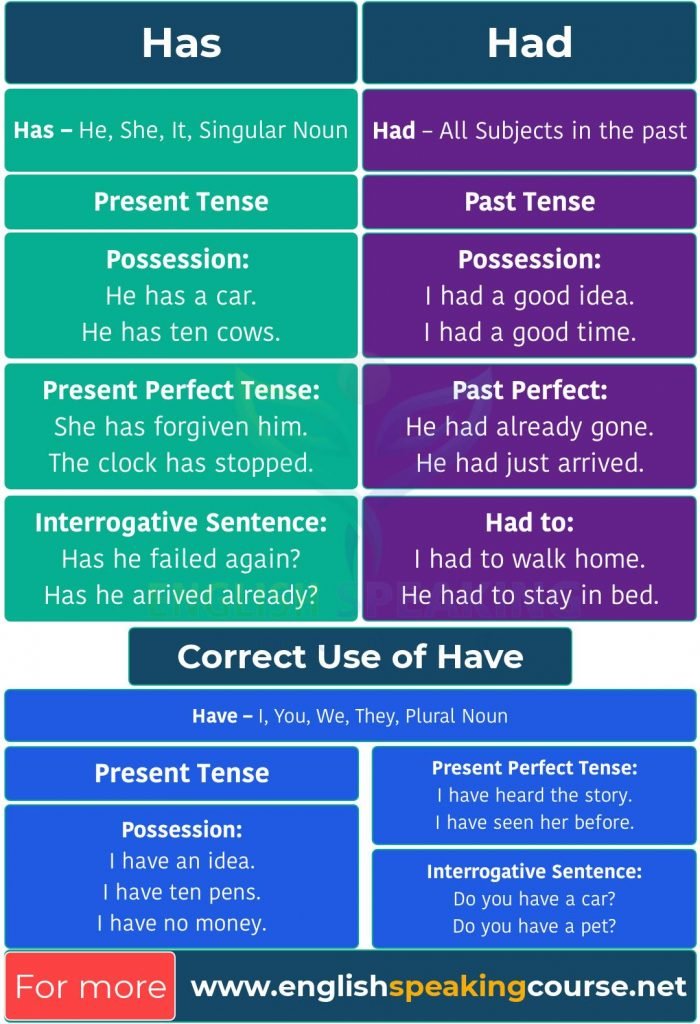
Have Has Had Basic English Grammar Grammar
you (all) have. 3rd person: he, she, it, they. he/she/it has. they have. You'll notice that the only subject you should use "has" with is third person singular (he has, she has, it has). You should use "have" everywhere else. The subject "Al and Sue" is third person plural (the same as "they"), so use "have." Al and Sue have purchased a new home.
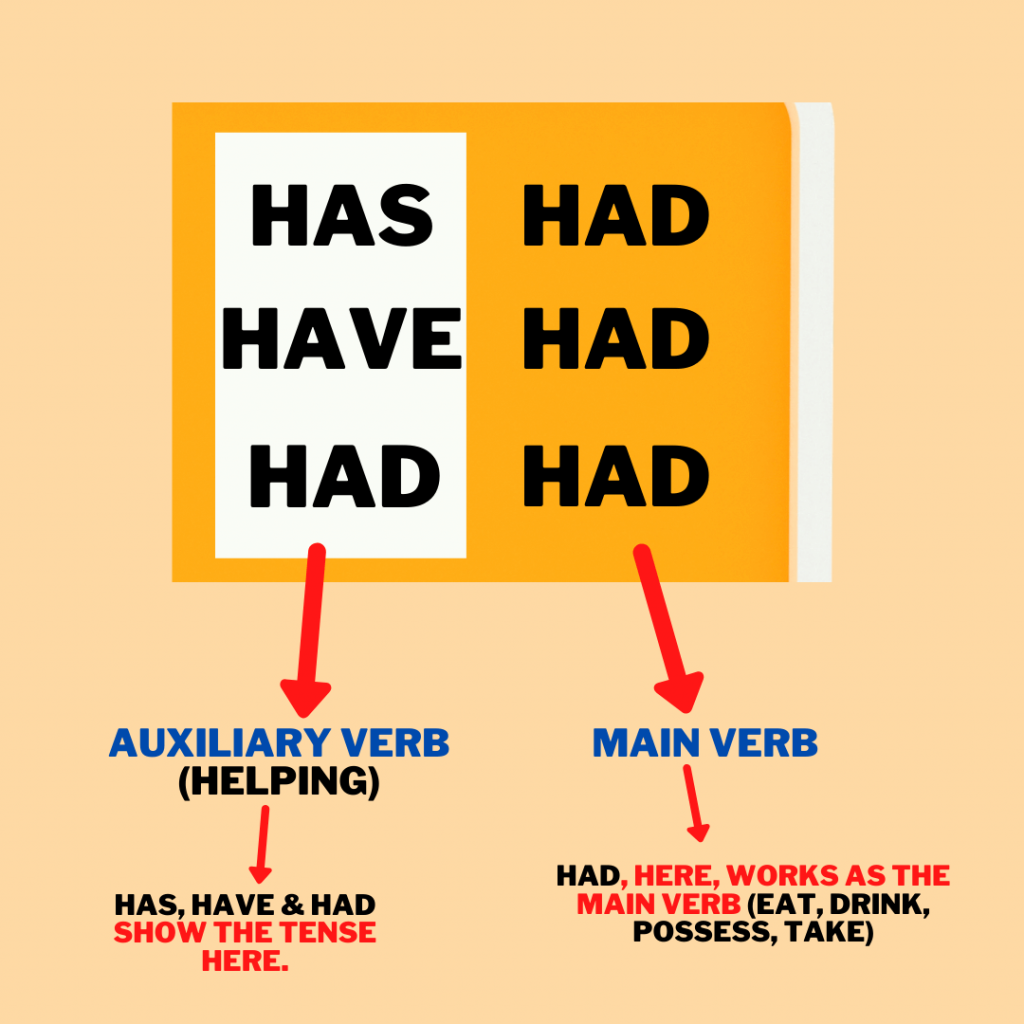
HAS HAD, HAVE HAD, and HAD HAD in English usages, examples and
10 min. Twenty-five percent of Americans say it is "probably" or "definitely" true that the FBI instigated the Jan. 6, 2021, attack on the U.S. Capitol, a false concept promoted by right.
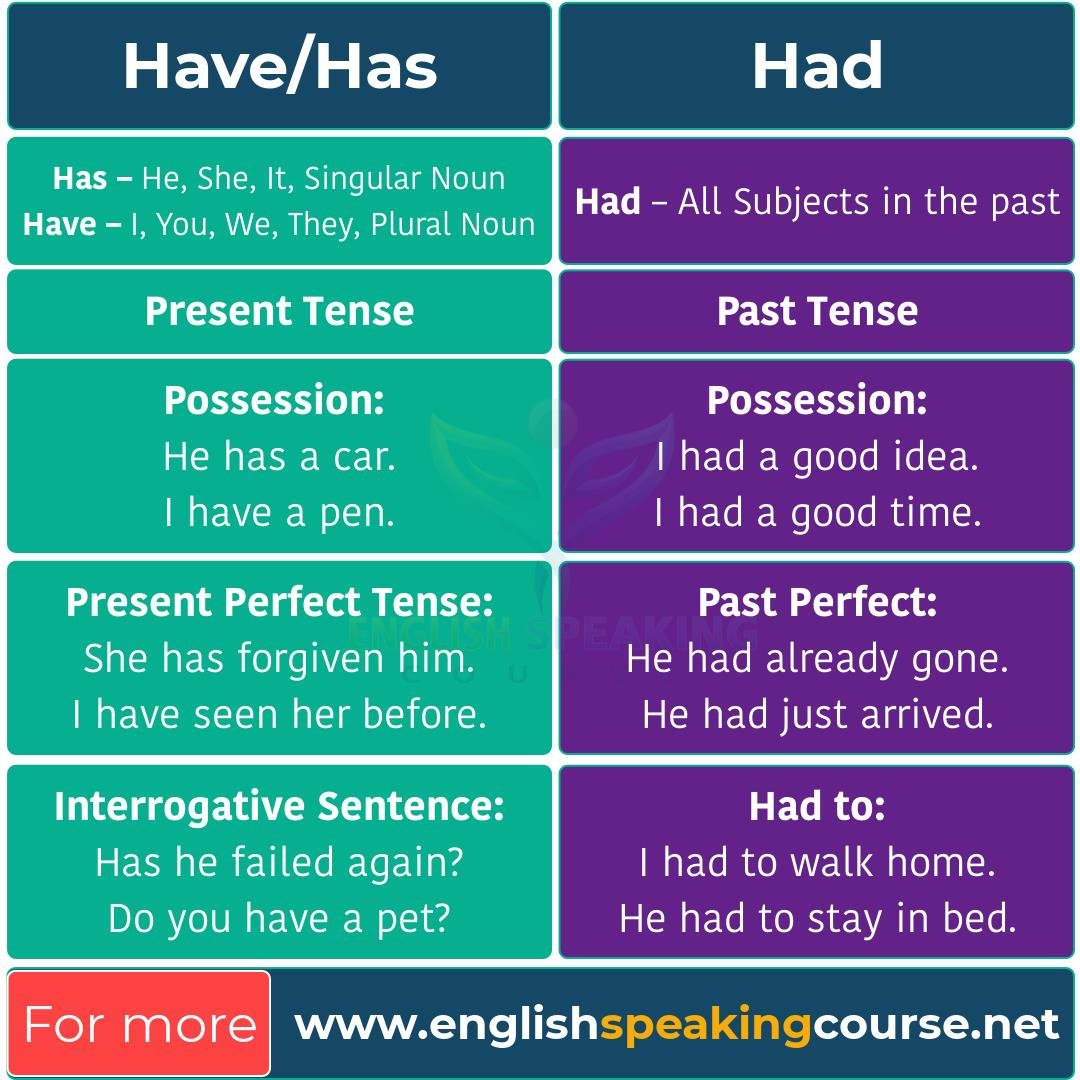
Have Has Had Basic English Grammar Grammar
Understanding Has vs. Have (Definition and Examples) | GrammarBrain Home / English / October 3, 2022 Understanding Has vs. Have (Definition and Examples) In our minds, the difference between has and have are evident. As a native English speakers, we use these verb forms flawlessly.

Verb to be amareiswaswere Interactive worksheet English Grammar
. Recommended . 2023-09-05 . null mins read Table of Contents Present and Past Tenses - "Is/Am/Are/Was/Were" Present Perfect Tense - "Has/Have/Had" Avoiding Common Mistakes Improving Communication Skills Conclusion Effective communication is rooted in proper grammar usage, and mastering verb tenses is a fundamental aspect of this skill.

HAVE, HAS, HAD, HAVING and HAVING DONE. English grammar lessons for
Even though "have" and "has" come from the same verb "to have," there are slight differences in the way they're used. Read about how to use them here.
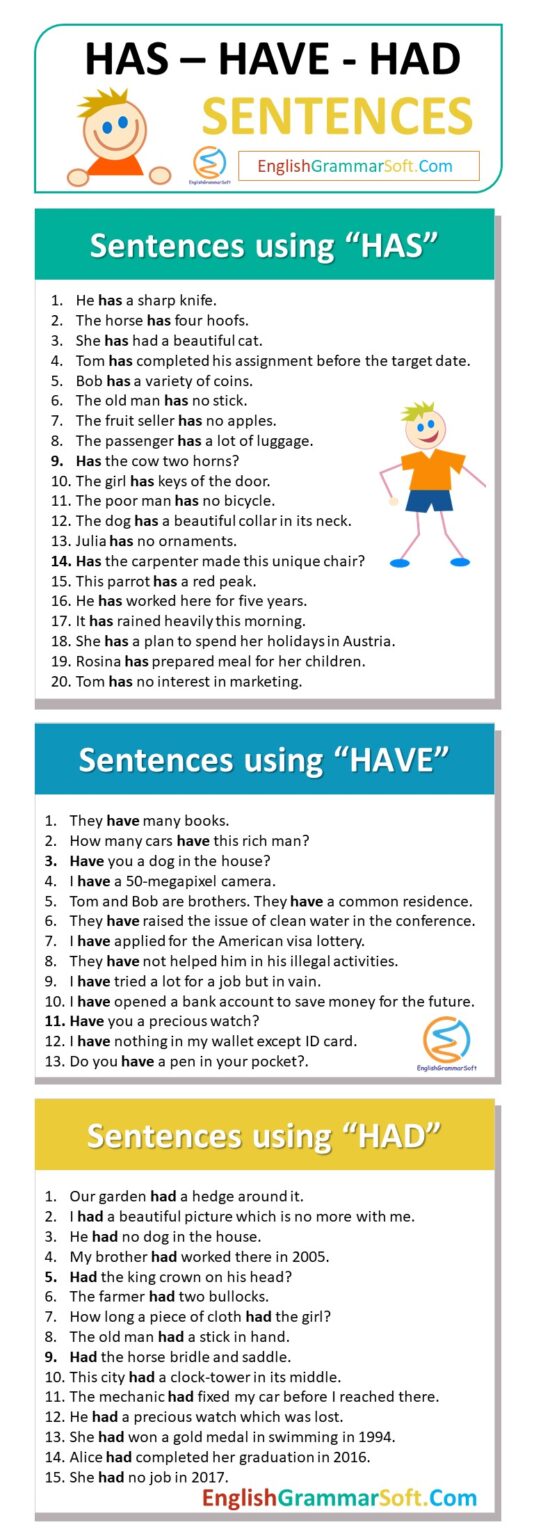
Has Have Had use in sentences 50 Examples EnglishGrammarSoft
1 Answer Sorted by: 5 You are quite right: these both require plural verbs. Any dictionary should give you the conjugations of have and be

Complete Com Verbo To Be Am Is Are EDUCA
In short: Warnings have been issued for large parts of Victoria after heavy rain led to flooding in the state's centre and into the north. Residents of parts of Rochester, Seymour and Yea have.

WAS vs WERE How to Use Were vs Was Correctly? Confused Words
Has and have are two of the English language's most popular words to describe possession. But just because these words are used in everyday conversation doesn't mean we're familiar with the grammar rules on how to use them correctly. Has and have are both forms of the verb to have, but they are used in different grammatical contexts.

AM, IS, ARE , WAS , WERE, WILL BE, HAVE, HAS, HAVE HAS BEEN, HAD BEEN
Auxiliary verbs are also known as Helping Verbs.am, is, are, has and have are used in present simple tense.am, is, are, has, have are used as main verbs in p.

DO, DOES, AM, IS, ARE, WAS, WERE, WILL, WOULD, HAVE, HAS, HAD. ENGLISH
1 Answer. The subject of the clause is "the failed object and each completed object"; since it is plural, the verb needs to be have. My father and I are going to visit my grandfather. My girlfriend and her sister have visited Italy at least once. That is because the clause is using and as conjunction; if it uses or, the subject would be singular.
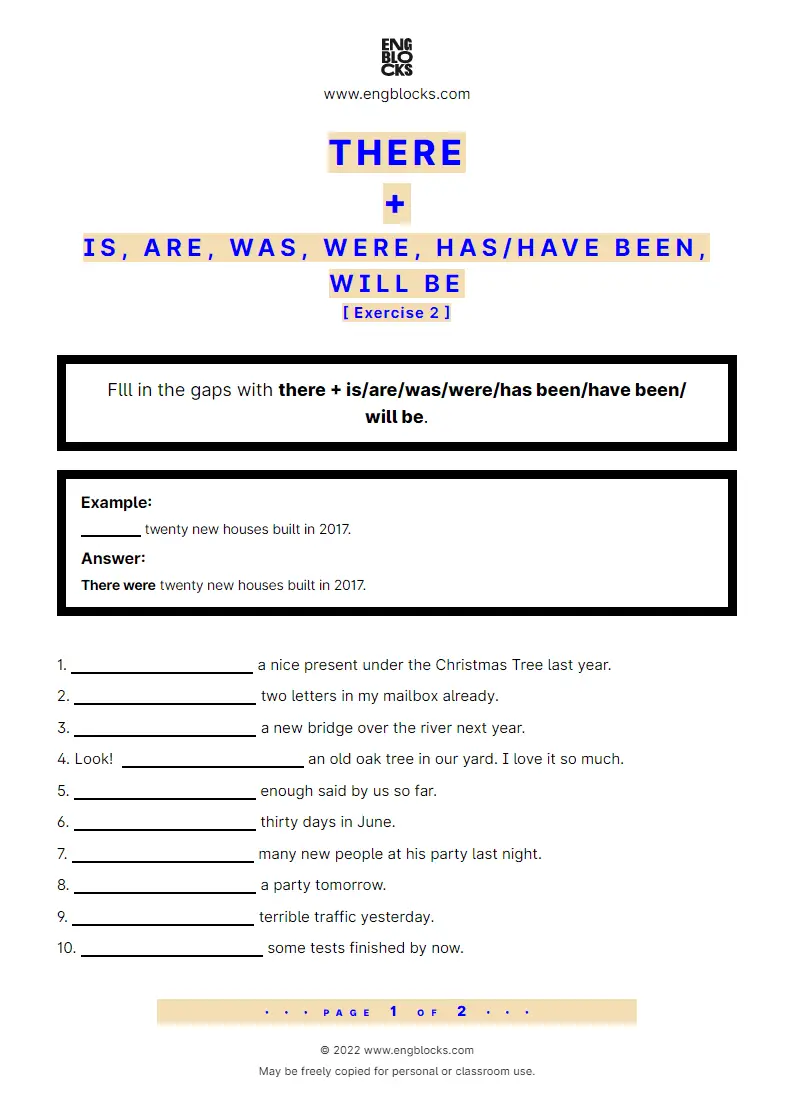
There + is/are/was/were/has been/have been/will be Exercise 2
Chances are, you're familiar with one difference between was and were: the fact that was is the first- and third-person singular past tense form of the verb to be, while were is the second-person singular past and the plural past form of to be.

Has Have Had Fill in the Blank Worksheet Have Fun Teaching
The main difference between "has" and "have" lies in which subjects they use. "Has" is used with the third-person singular subjects "he," "she," and "it," or a singular noun. "Have" is used with first-person ("I," "we"), second-person ("you"), and third-person plural ("they") subjects. Examples: Johnny has to leave soon.
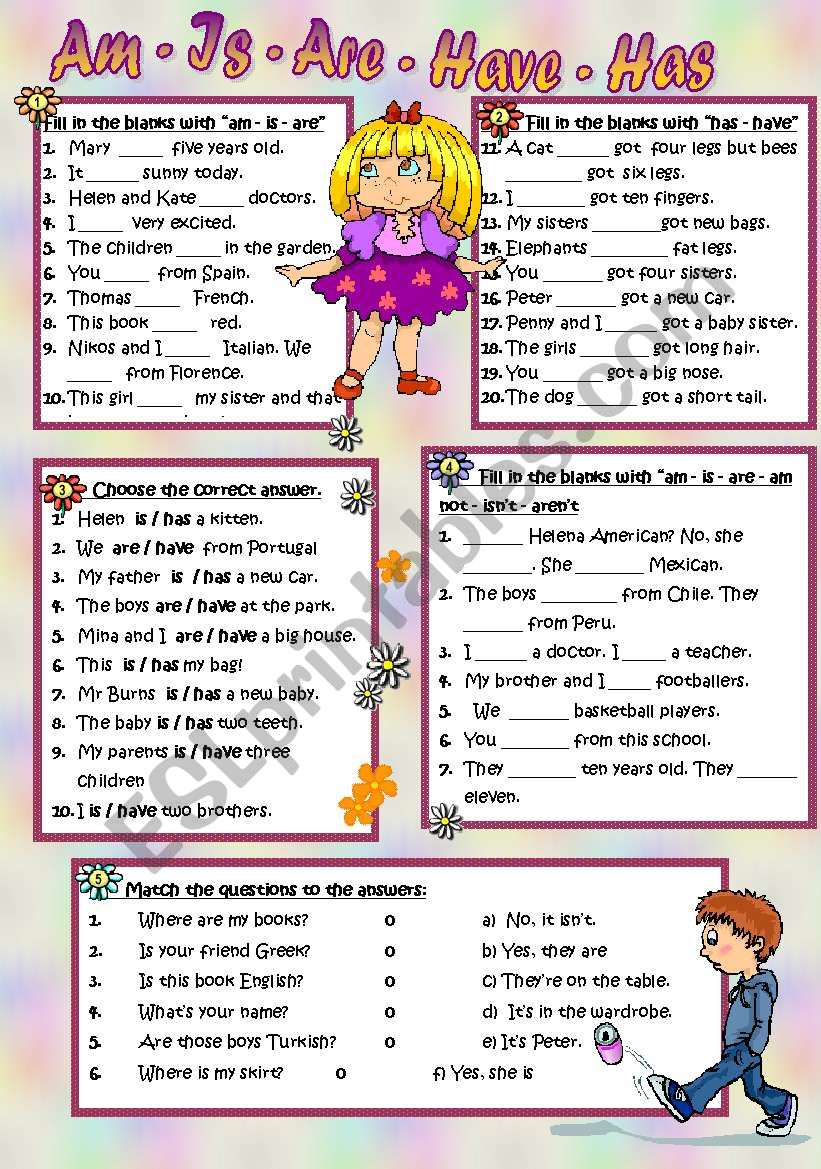
was and were online worksheet am is are or was were interactive
To have means to possess or hold something. It also means to experience or undergo something. "Has" and "have" both mean the same thing as "to have." So why are there two different versions of the word? When Should I Use Have or Has? It's all to do with who we are talking about.

WAS vs WERE 🤔 How to use the verb correctly English grammar
Confused about Where To Use "Is / Are / Am / Was / Were" And "Has / Have / Had"? We Are Here To Help! admin 2022-12-15 3 min read The past tense in English is a common complaint from my students. The past tense is formed by simply adding the suffix "-ed" to the end of a verb. Simple!

Am Is Are Was Were Has Have Worksheets Angela Carroll's English
In this comprehensive English grammar tutorial, you will learn how to properly use "is, am, are, was, were, has, have, and had" in your writing and speaking..

BE ( am / is / are / was / were) English ESL worksheets pdf & doc
What Are Auxiliary Verbs? An auxiliary verb is used with a main verb to help express the main verb's tense, mood, or voice. For example (auxiliary verbs highlighted, main verbs in bold): Tense. The tense of a verb tells us when the action took place. Sally was eating the cake. Mood.